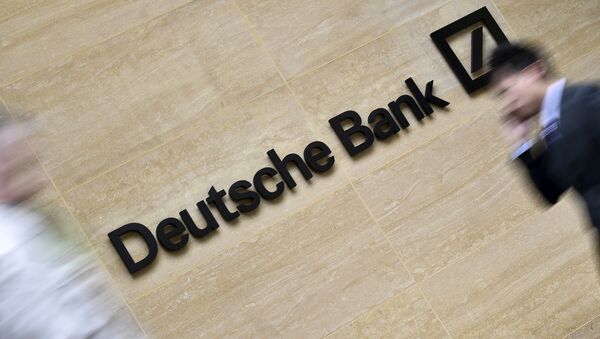Europe’s top financial institutions are teetering on the edge of collapse as access to high quality debt products have created a liquidity freeze rendering many institutions near insolvent according to the European Union stress test that assesses each bank’s ability to withstand the shock of a global economic slowdown.
The Bank of England rushed in to reassure global markets that UK lenders remain in a strong position to weather global financial shocks, but the rest of Europe may be in for more than its fair share of turbulence.
The European Banking Authority (EBA), an EU institution, coordinated the test of 51 lenders from across the bloc expressed concern in the wake of the test noting that most of Europe’s banks are not properly situated to withstand a major market event.
Coming in with one of the worst stress test results was perhaps the most systematically important financial institution in Europe, Deutsche Bank. The financial institution saw a 98% plunge in its annual profits sparking concern that it may be the Lehman Brothers of 2016 creating a domino effect infecting the assets of the global financial system.
However, as bad as the news has been for Deutsche Bank, the prize for the most vulnerable financial institution in Europe went to Italian lender Banca Monte dei Paschi di Siena (BMPS), the world’s oldest bank. BMPS is reportedly loaded with toxic loans and mortgages and in the event of an economic downturn the institution’s capital ratio would dip into negative territory – or bankruptcy.
Although Europe’s banks appear shaky enough that a light summer breeze could knock them over, economic analysts wonder whether macroeconomic headwinds will persist turning the danger into a tragedy.
The shock that crushes Europe’s financial sector may not be the start of worldwide recession – although Britain’s post-Brexit economic output looks dreary, China is surviving on a flood of stimulus spending, and the United States GDP growth was an uninspiring 1% in the last quarter – but instead the sudden drying up of German debt markets which means overleveraged financial institutions cannot access capital to cover bad bets.
The European Central Bank largely created the dry up in the credit markets through its Quantitative Easing stimulus program fueled by the purchase of German government bonds to infuse new liquidity into the financial markets, but Germany has halted borrowing and the ECB is blocked by its own rules from purchasing other bonds that are below benchmark interest rates, reports Die Welt.





